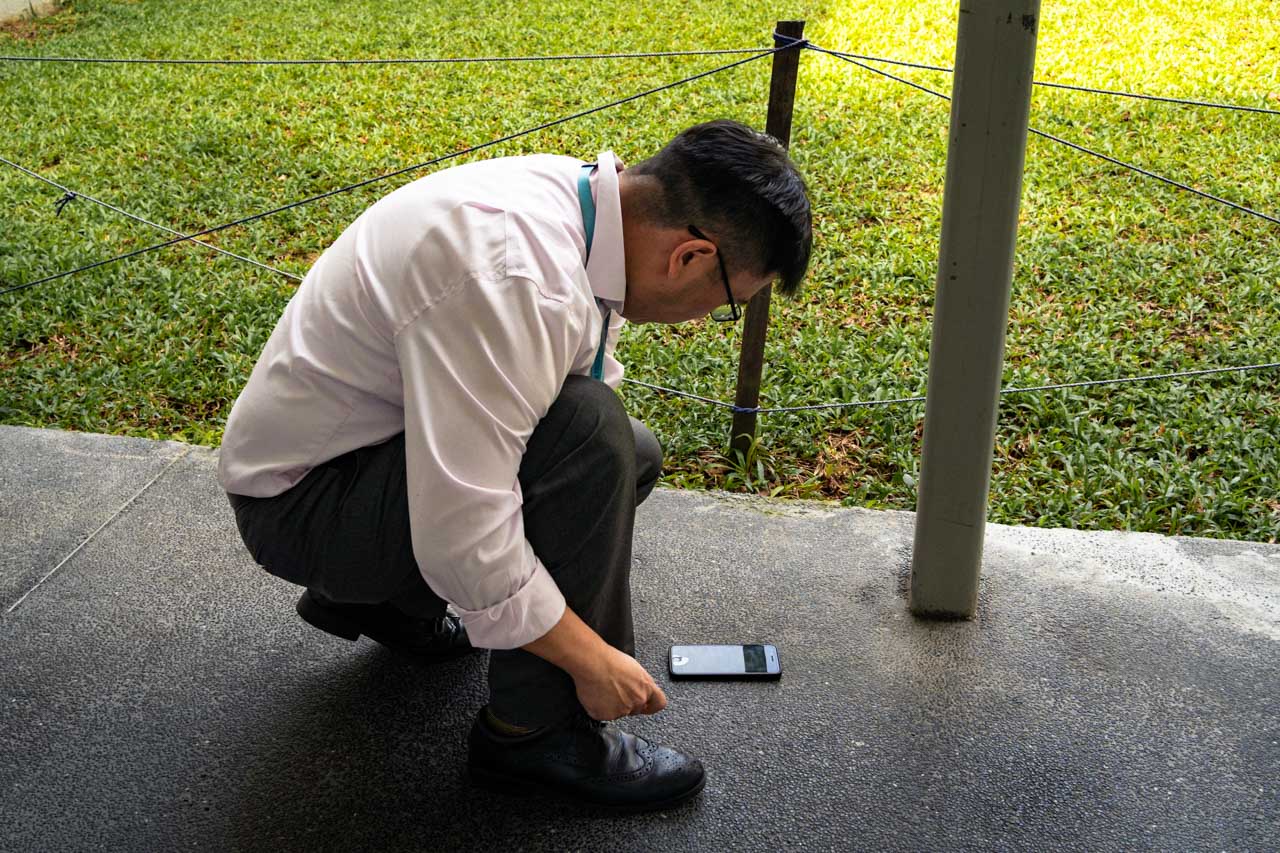Top image: Stephanie Lee / RICE File Photo
Aden* isn’t embarrassed. He’s forthcoming about the failures of a startup he founded in 2022.
His voice remains calm as he recounts his ill-fated journey as an entrepreneur.
While many of us fear failure and cling tightly to the bosom of stable employment, this Singaporean’s dream blazed with an intensity that eclipsed the S$150,000 he was earning in an engineering MNC.
He traded that for the uncertain salary as a self-employed entrepreneur.
“I didn’t feel fulfilled, and I also felt my personal growth stagnating,” recounts Aden with an awkward chuckle. “But the money was good at my comfy job, and [that money enabled] me to treat my loved ones to luxuries.”
In his sales role at the engineering company, he felt more like a cog in a big machine. As someone who feels compelled to help others, he also felt that he wasn’t able to do good.
Despite the security of a well-paying job, personal encounters with children with learning disabilities gradually nudged him to start an education company that supports them.
Aden pursued his dream with gusto until his startup collapsed. But when it eventually did, he re-entered the daily 9-to-5 grind with his head held high.
Now in his late 30s, Aden believes it’s better to take the leap—even if you stumble—than to never have leapt at all. He stands among a handful of Singaporeans who never came close to tasting success; one of the many who gave it all up for a dream but woke up to the realities of what it truly costs.
Where others might see failure, Aden sees an initiation into an exclusive club of those who’ve taken risks, failed, and lived to tell the tale. Their fiery baptisms left them with lessons far deeper than what fame, success, and money alone could offer.
What is it like to find meaning again after the pursuit of purpose falls short? Aden’s journey, like many others, is a testament to resilience—the kind forged in the quiet aftermath of failure.
In a new era of Singapore celebrating tales of self-made success, this is a story about the many who dared to leap but landed right where they were before.
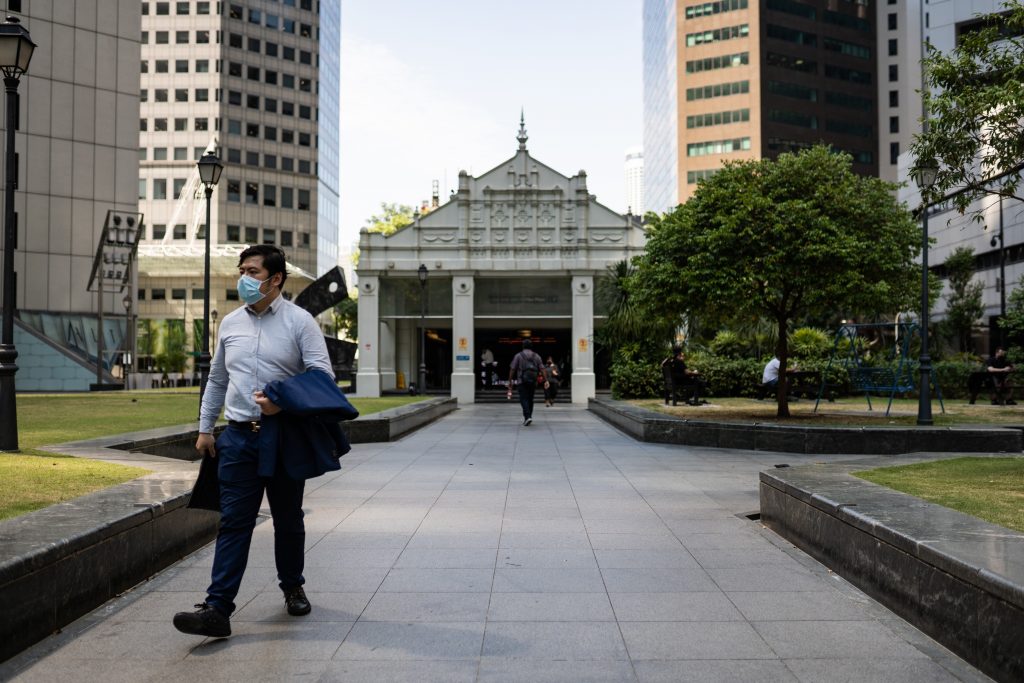
Goodbye, Hamster Wheel
“I had the chance to meet many dyslexic children who were wrongfully treated as stupid,” Aden says, wincing.
He recounts a time when he saw a mother lose her temper while struggling to teach her dyslexic child English.
“The child kept crying and looked so helpless. And both of them couldn’t understand what was wrong.”
He points out the many videos on TikTok that make fun of such children who might fail to grasp three- or four-letter words despite repeated lessons. Far from being amused, Aden felt the pain that these children and their parents experienced because they didn’t understand how dyslexia factored into these stumbling blocks.
“And so I started researching what skills I could learn to help them. They are young, so if I could improve their lives, that would benefit them for many years to come.”
Jesper Leong too felt a similar internal conflict when he felt the itch to venture out of his comfort zone.
“I used to create social media content and run social ads for a marketing agency, where my efforts were not appreciated,” discloses the 32-year-old, a flicker of old frustration colouring his words.
He recalls putting in long hours and receiving no gratitude from his superiors. As his resentment grew, so did the idea of doing something more purposeful.
“I thought that perhaps I might find job satisfaction through building a business based on skills I’ve learned. I also [desired to help businesses] affected by Covid.”
Soon after, an acquaintance offered Jesper the chance to co-found a startup in 2020, where Jesper’s digital marketing knowledge would be applied to help SMEs improve their marketing efforts.
This acquaintance proposed utilising their combined marketing experience to help ailing businesses connect with customers digitally—a venture that could be both lucrative and meaningful.
Smitten by the allure of finding an ikigai—that elusive sweet spot of passion and purpose— Jesper leapt at this opportunity without seeking much advice from his peers.
A spirited Jesper devoted his resources and energies to his startup, as did Aden, who also left his stable job with a sense of optimism.
Aden diligently filled in the extensive paperwork to register his company despite facing discouragement from peers.
“My boss asked why I was ‘throwing my career away’. My colleagues couldn’t understand why I was [resigning], but they were [nonetheless] encouraging and wished me all the best.”
Building a sustainable business from zero holds steep learning curves, but Aden’s vision inspired him to trudge on through late nights and lonely weekends.
But such is the seductive allure of breaking free.

Not for the Faint-Hearted
Aden’s encounters with dyslexic children sparked a deep sense of indignation. He knew there had to be a way to level the playing field, to give them a real chance—and maybe, he could be the one to do it.
“I met ‘special’ kids who were bright. They weren’t unintelligent. They just process the world around them differently from how we do.”
He feels that special needs kids in Singapore can benefit from more understanding, empathy, and special infrastructure to scaffold their learning. When left by the wayside they would never realise their full potential. Witnessing this lit a fire in Aden’s belly.
“When I know I can do something to benefit others, I don’t procrastinate. I will take action regardless of whether there is a chance of failure.”
His zeal drove him to attend after-hours courses on teaching children with dyslexia. Late nights spent poring over textbooks fuelled a quiet determination, convincing him he could build a sustainable business in an underserved field.
A year later, when Aden’s studies armed him with a Diploma in Learning Support for Specific Learning Differences, he set up a private tutoring service that not only helped dyslexic students learn but also trained their parents into better-equipped teachers and caregivers.
The joy he felt when his students made progress was like nothing else. Every lightbulb of understanding flickering to life in his students’ eyes was worth the struggle.
Alas, entrepreneurial ventures, no matter how fulfilling, might present challenges that are unsurmountable.
Aden opines that running a business demands discipline and consistency, and the uncertainty of finding new clients can be harrowing. He was a one-man team scurrying about to tutor students across the island. As it is with all children, erratic schedules and moods led to some last-minute cancellations.
He chased many leads, some of which went cold, and spent late nights looking for more ways to promote his business. He made major concessions to his lifestyle, given that his monthly income was halved. He decided not to go on overseas vacations for a while and would eat at hawker centres more often. Through it all, Aden felt alone.
“I was struggling emotionally, so my solution was to seek support from friends, read quotes and watch videos about positivity and success.”

Jesper, too, rode a high at first. He was at the top of his game, crafting marketing strategies, creating compelling collateral, and sparking digital transformations for traditional businesses in a semi-locked-down world.
Helping SMEs navigate the stormy seas of Covid gave him a sense of purpose, but soon, Jesper himself was accosted by waves of unforeseen challenges. As the adrenaline wore out and the reality of low turnovers set in, Jesper began to feel the weight.
Adding to his dismay was the realisation that his partners were not fairly disbursing revenue. In hindsight, he regrets accepting excuses from partners when they took the slim returns that trickled in to “cover other costs first”.
The early stages of entrepreneurship are heady—a rush of freedom and excitement. On his end, Aden loved his flexible schedule. If he wanted to put in extra hours, he could, and was thrilled when his efforts paid off. The more he marketed his startup and grew his online presence, the more inquiries he received, reaffirming to him that his cause was plugging a large demand.
Yet, as Aden and Jesper soon realised, the reality of running a business is often harsh.
After a year of not turning a profit, Jesper called it quits. He had given up a meagre (but stable) income of over $3,000 a month to make nothing for a whole year. The misery of that experience still hangs in his voice.
“I had gone in hoping that I would build a thriving business, but all I got at the end of the day was an emptied bank account and nothing to show [for it],” he shares.
“Admitting to myself that I had failed was tough since I had put in countless nights and tried my best… which is the opposite of what we were told in a meritocratic system, that hard work is rewarded.”
In hindsight, Jesper might have avoided common entrepreneurial mistakes had he consulted the right people.
“Speaking with other business owners would have helped to make [my business] goals clearer.”
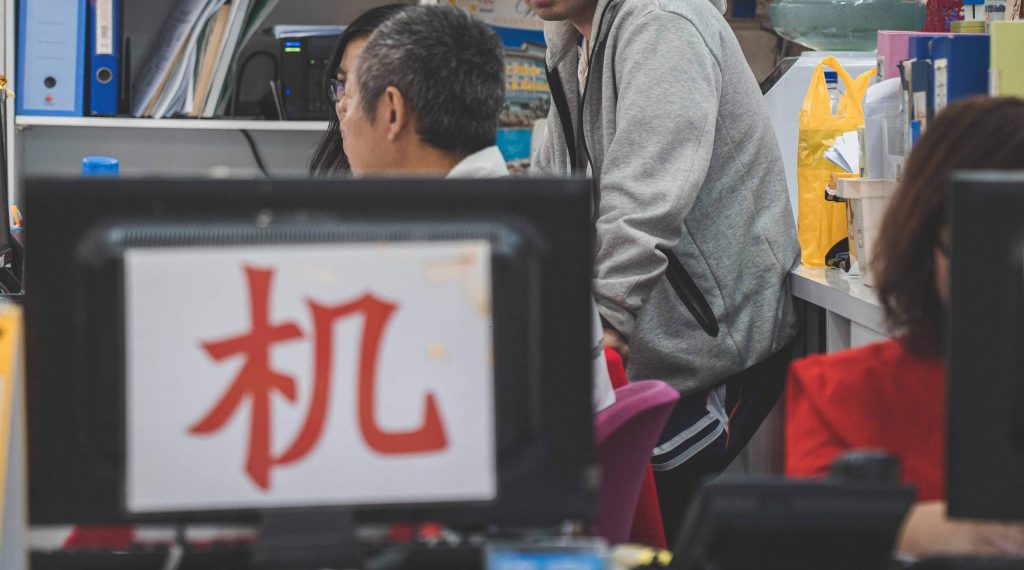
Reversing the Hurt
Fiqah* will never forget being backstabbed by colleagues and berated by her superiors in her previous role as a writer in media companies where she was “severely overworked and underpaid”.
Once a jovial and outgoing sportswoman, the grind led to the 31-year-old falling ill often. Frequently chided by her bosses, she found herself constantly in fight-or-flight mode. Her mind couldn’t stop racing with deadlines even after work, which led to many sleepless nights.
“I was falling sick—and sick and tired of working for bad managers,” says the 31-year-old. “I was so stressed that I developed severe insomnia.”
A design aficionado, Fiqah had bottled aspirations of pursuing work in design and architecture. Her burnout, coupled with her yearning for a more satisfying, hands-on job, led her to found an interior design firm in 2023.
“I enjoy managing projects and seeing my work bring smiles to faces. My husband has a lot of construction experience, and we have many contacts in the field of interior design, so it was a done deal.”
The flexible hours of freelance interior design suited Fiqah a lot better. While she didn’t overcome her insomnia overnight, her mental state gradually improved as the pressures of a traditional workplace faded away.
Determined to be a better boss than those she had, Fiqah also made employee welfare a priority.
“I make sure that they receive all the support they need, which can comprise contacts, quotations, guidance, training and emotional support, especially when clients are demanding or unreasonable,” she says.
“I want our staff to look forward to going to work.”

The chastisement Fiqah faced at her former job was replaced by compliments from her interior design clients, but it wasn’t all sunshine and rainbows.
She recalls clients making unreasonable last-minute changes to her hard work, with some vehemently arguing that her final products were not what they had approved. Worst of all, some withheld payment or cruelly insisted her efforts weren’t worth a cent.
“Failure is the best teacher,” Fiqah reflects, having returned to a full-time job at a media company a few months ago to supplement her income. Ensuring healthy cash flow is one of entrepreneurship’s toughest challenges, and this was her solution to keeping her interior design firm afloat while her husband continues leading the company.
“The unstable paycheck was one factor; I needed to earn more to support my family.”
With a monthly salary now, she no longer worries about money. But she is grateful for the responsibility and organisational skills self-employment instilled in her.
“Some entrepreneurs like me took a long time to break even. Losses and mistakes are inevitable, but we learn.”
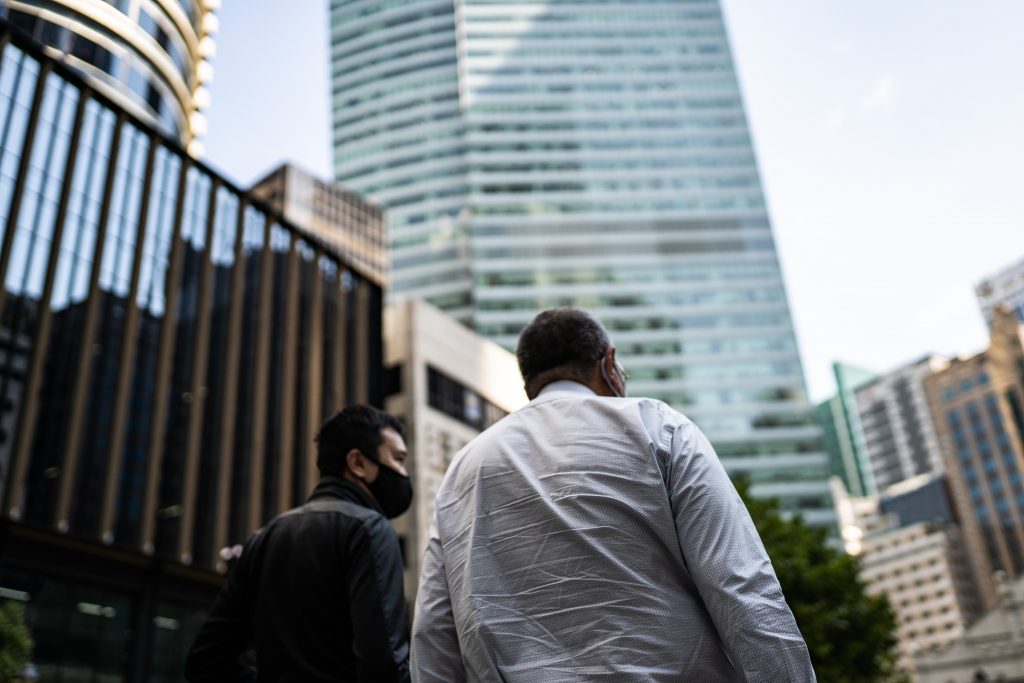
Learn From Our Mistakes
The road to entrepreneurship can be lonely—an endless marathon without a cheering crowd.
Even if you project profits, business owners must expect to face potential losses. Aden also had to shut out discouragement from family members.
“My parents were anxious about me forgoing a pretty stable ‘rice bowl’ to take huge risks with my finances,” says Aden. His parents gently persuaded him, time and again, to consider going back to full-time employment.
“Being a business owner can get lonely. I advise finding a mentor to review your business plan. Even then, you will still need to stay nimble along the way because there will always be blind spots.”
Jesper sought peace of mind as he felt the pressure from the mounting bills of his startup and the responsibility to support his parents.
In the middle of the storm, Jesper found himself moonlighting, trying to stay afloat in the sinking ship of his startup.
His main lesson learned, harsh as it was: choose your partners wisely.
“It’s easy to go in with a sense of awe and [trust] that everyone is working towards the same goal. Be picky with your partners; pick partners with [upstanding] character that benefits the company and with skill sets that complement yours.”
After Jesper threw in the towel in 2021, he took on a marketing role in the tech industry, where he realised how much he had missed drawing “a stable monthly salary, employee insurance coverage, and clear segregation of work and personal life”.
Although Jesper left this venture empty-handed, he emerged a more efficient worker, better at time management, sharper at problem-solving, and improved in judging character.
“I’ve also amassed a network of businesses that I can tap into. The [startup] opportunity presented itself, and I grabbed it. Even though it didn’t work out, I learned several social and career-related skills that I wouldn’t have picked up otherwise.”
Jesper emphasises that his detour “opened a whole host of opportunities” to him. Today, he still helps SMEs with marketing outside of his day job.
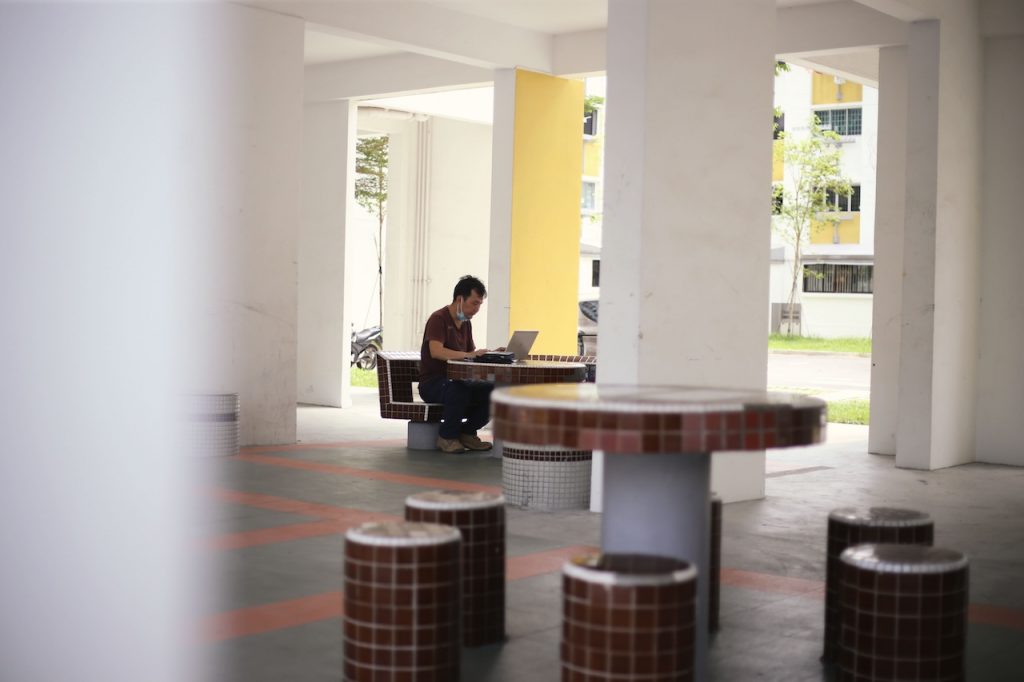
Dwindling clientele led Aden to close his tuition business in early 2024, but his fire was never fully extinguished. He continues to tutor a handful of kids with special learning needs.
Now a financial advisor, he’s back to making money through sales while applying his interpersonal skills daily. He’s found a better job fit, leveraging his life experiences without feeling growth stagnation. He learns from more experienced seniors, applying the discipline and accountability from his entrepreneurial days.
Aden has the freedom he longed for; he’s no longer tethered to a desk and can choose his working style and hours.
“No regrets. And if another opportunity arises to start a new business, I’d definitely do it,” he says.
When he meets Singaporeans who are afraid to fail, he challenges them with a simple, profound question: “Do you want to live your life or spend it caring about what others think? Because you’ll ultimately have to answer to yourself.”
Regret is Worse Than Paiseh
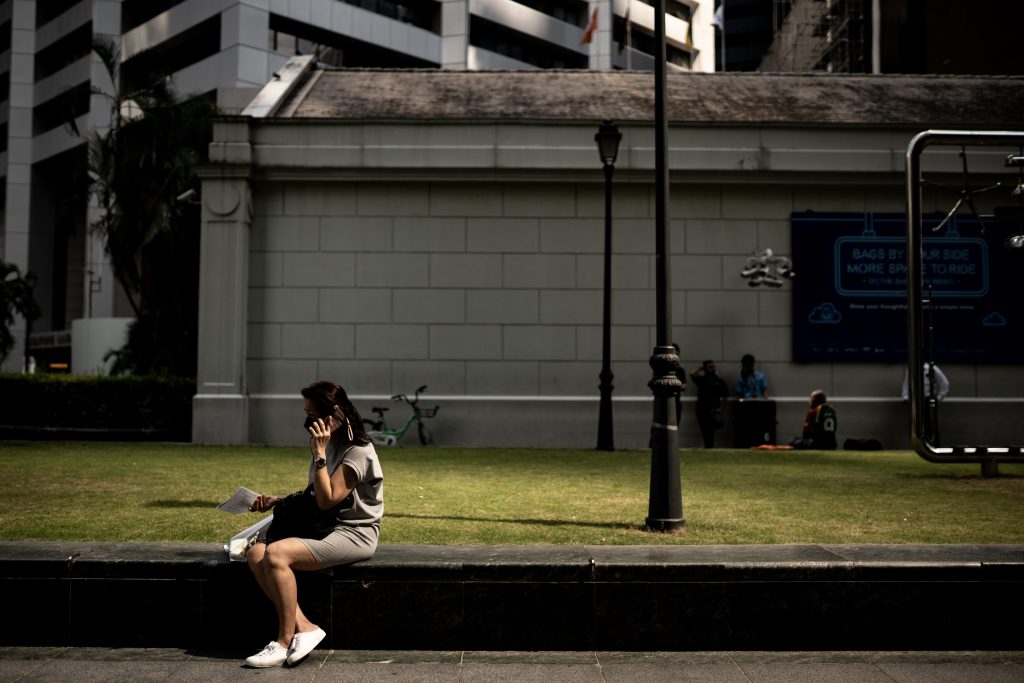
“Don’t be paiseh to fail—you might not realise that your passion and determination as an entrepreneur make you a role model for younger family members,” Fiqah offers. “When you look back, you’ll take pride in your accomplishments, failures included.”
Entrepreneurship is anything but smooth sailing; it’s a winding journey of highs and lows, where value comes not from avoiding choppy seas but from embracing them as part of personal growth.
Their experiences continue to shape their paths, reminding us that the greatest growth often stems from taking risks, even when the outcome is uncertain.
Jesper’s words about our meritocratic system not always rewarding hard work linger in my mind. Regret is worse than not having tried at all.
In Singapore, failure is colloquially called “die,” but it’s far from the end. For Aden, Jesper, and Fiqah, failure sparked deep self-discovery and new beginnings.
While our upbringing encourages hard work and striving to avoid setbacks, the success of most entrepreneurs is rooted in their ability to fall, learn, and rise again—stronger and wiser than before.
Ultimately, it’s the willingness to embrace failure that reveals our true potential.
